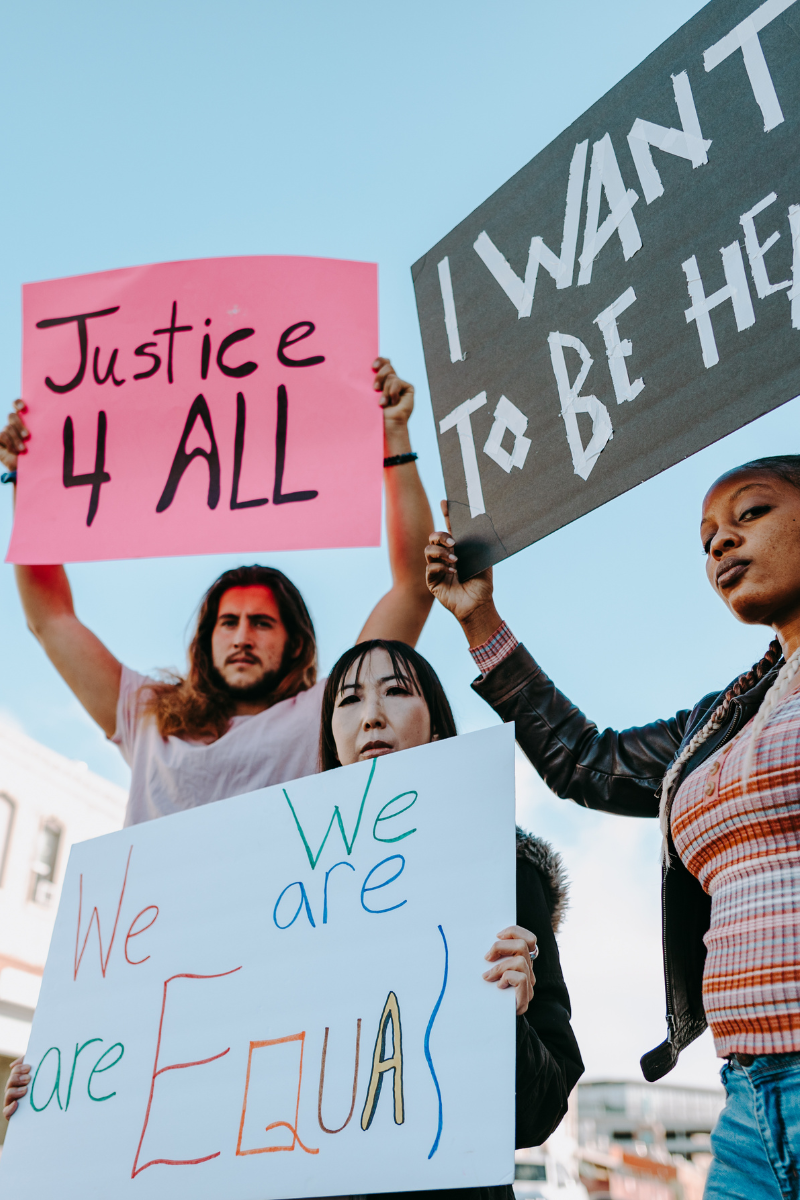Why Young Men in the US Should Pay Attention to and Advocate for the Equal Rights Amendment
July 23, 2024
In the United States of America, the concept of equality has been at the forefront of societal progress. From the founding principles of the nation to ongoing social movements, equality has played a vital role in shaping the American identity. Let's explore why equality is crucial in America, highlighting its significance across various aspects of life.

The United States was founded on the principle that "all men are created equal." This belief in equality has been written into the nation's fabric and serves as a guiding light for progress. The Declaration of Independence reflects the importance of equal rights and opportunities for all citizens, regardless of their background or social status.
Equality is crucial for social justice and upholding human dignity. It means providing equal opportunities and fair treatment for all Americans, regardless of their race, gender, religion, or socioeconomic status. By addressing systemic inequalities, such as disparities in education, employment, and criminal justice, society can empower individuals to reach their full potential and fully contributing to society.
An equal society fosters economic prosperity. When there is a fair distribution of wealth and resources, it leads to greater economic growth. By reducing income disparities and creating a thriving middle class, equality promotes consumer spending, boosts innovation and entrepreneurship, and drives overall economic success.
Equality goes hand in hand with diversity and inclusion. The strength of the United States lies in its rich tapestry of cultures, backgrounds, and perspectives. Embracing diversity and creating inclusive environments in all sectors, from businesses to educational institutions, fosters innovation, creativity, and problem-solving. It enables America to remain globally competitive and pushes society forward.

Equality is vital for ensuring political participation and representation. It means granting equal access to voting rights, eliminating barriers that prevent marginalized communities from having their voices heard, and promoting diverse representation in government. By embracing equality in the political realm, the U.S. strengthens its democracy and ensures that decisions are made with the input of all its citizens.
Equal access to quality education is crucial for unlocking the potential of future generations. By providing equal educational opportunities to all children, regardless of their socioeconomic background, race, or location, the U.S. can bridge the achievement gap and create a skilled and competitive workforce. Education is the pathway to social mobility and empowers individuals to break free from cycles of poverty.
Equality in health care is a fundamental right. Accessible and affordable health care should be available to everyone in the U.S., irrespective of their socioeconomic status. By addressing health disparities and ensuring that everyone has equal access to health services, the United States can promote well-being, reduce preventable diseases, and enhance the overall quality of life for its people.

Equality plays a crucial role in building social cohesion and fostering unity among diverse communities. By embracing equality and fairness, the U.S. can bridge divisions, promote understanding, and create a sense of belonging for all its people. When everyone feels valued and included, it leads to stronger communities, increased social trust, and a united nation. (Isn't that the goal?!)

Legislation and policy play a significant role in advancing equality. Anti-discrimination laws help protect individuals from prejudice and bias, ensuring equal treatment under the law. Read more about the Equal Rights Amendment and why it plays such a huge role for the future of equality in the U.S. By actively addressing systemic biases, the United States can create a level playing field where opportunities are not limited by factors beyond an individual's control.
While progress has been made in the history of the United States, there is still a lot of work to be done. The U.S. must continue to strive for a more equal society. This requires collective action, individual responsibility, and a commitment to addressing ongoing challenges.
Equality stands as a cornerstone of American ideals, providing the foundation for a just, prosperous, and inclusive society. From social justice to economic growth, political participation to health care, embracing equality is essential for the nation's progress. By recognizing its significance and actively working towards it, the United States can continue its journey toward a more equal future.
Subscribe to our newsletter to stay updated on all things ERA and equality in the U.S.!
Watch our ERA 101 town hall discussion below, or check out these resources for a little more info: